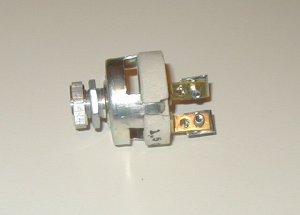d55dave
Well-Known Member
I have been working this winter upgrading some things on my 55 Royal Lancer in order to make it more drivable. This includes a ford 8.8, split brake system with adjustable proportioning valve, 4 wheel disc brakes, repairing some stress fractures in the frame around the steering box and fixing the transmission leaks.
I have been mulling over a 6 to 12 volt conversion for obvious reasons, but can't seem to wrap my head around a few things. Here is what I know and some questions.....
To the best of my knowledge all 6v automotive systems were positive ground, and all 12 volt are negative ground.
DC motors are polarity sensitive, meaning if you switch polarity they will turn backwards.
I believe (but could be wrong) that most automotive electric motors are internally grounded.
I have searched the net and found 12 to 6 volt step down transformers listed to run things like wipers, guages and blower fans after doing a conversion, but little to no information on switching polarity.
If I just rewire my car and switch to 12 volt neg ground, and use a step down transformer to run my wipers and blowers will they not turn backwards? Perhaps people just don't notice......the blower will still move air but much less effectively and the wipers may run, but will the park function work?
I have read and heard of lots of people running a 6 volt starter on 12.....everyone says it is great and turns over nice and fast......but again, switched polarity, won't it turn backwards? When I ask anyone who has done this if they changed to negative ground they say yes, then when I ask them about the starter running backwards I get a blank stare.
When people do 12 volt conversions do they stay with positive ground?
Won't the guages want to move backwards with switched polarity?
The light's are no problem, 12 v bulbs and some new wiring, relays for the headlights, horns are no prob, a 12 v relay and some 12 v horns. I will add a fuse box while I am at it (there are no fuses in 55, just one breaker.....scary). I would love to get rid of all the crappy cloth covered wire.....but don't want to have to re engineer the wipers, blowers and guages to use modern 12 v internals.
With 12 v I can run a modern ignition and alternator......both requiring negative ground.
Sorry for rambling, there must be some electrical gurus here or people who have done a conversion before that could point me in the right direction. Am I over thinking this?
Thanks!
I have been mulling over a 6 to 12 volt conversion for obvious reasons, but can't seem to wrap my head around a few things. Here is what I know and some questions.....
To the best of my knowledge all 6v automotive systems were positive ground, and all 12 volt are negative ground.
DC motors are polarity sensitive, meaning if you switch polarity they will turn backwards.
I believe (but could be wrong) that most automotive electric motors are internally grounded.
I have searched the net and found 12 to 6 volt step down transformers listed to run things like wipers, guages and blower fans after doing a conversion, but little to no information on switching polarity.
If I just rewire my car and switch to 12 volt neg ground, and use a step down transformer to run my wipers and blowers will they not turn backwards? Perhaps people just don't notice......the blower will still move air but much less effectively and the wipers may run, but will the park function work?
I have read and heard of lots of people running a 6 volt starter on 12.....everyone says it is great and turns over nice and fast......but again, switched polarity, won't it turn backwards? When I ask anyone who has done this if they changed to negative ground they say yes, then when I ask them about the starter running backwards I get a blank stare.
When people do 12 volt conversions do they stay with positive ground?
Won't the guages want to move backwards with switched polarity?
The light's are no problem, 12 v bulbs and some new wiring, relays for the headlights, horns are no prob, a 12 v relay and some 12 v horns. I will add a fuse box while I am at it (there are no fuses in 55, just one breaker.....scary). I would love to get rid of all the crappy cloth covered wire.....but don't want to have to re engineer the wipers, blowers and guages to use modern 12 v internals.
With 12 v I can run a modern ignition and alternator......both requiring negative ground.
Sorry for rambling, there must be some electrical gurus here or people who have done a conversion before that could point me in the right direction. Am I over thinking this?
Thanks!

















